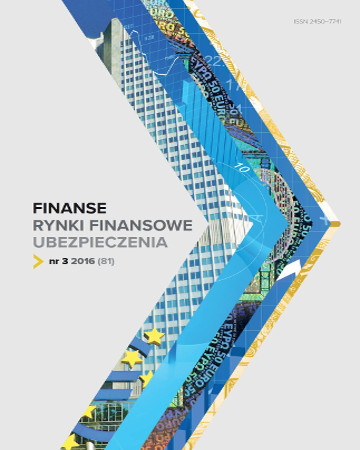
ISSN: 2450-7741
eISSN: 2300-4460
OAI
DOI: 10.18276/frfu.2017.89/2-32


Issue archive /
5/2017
Skuteczność zarządzania ryzykiem w projektach inwestycyjnych
(EFFECTIVENESS OF RISK MANAGEMENT IN INVESTMENT PROJECTS)
| Authors: |
Agnieszka
Siewiera
Zachodniopomorski Uniwersytet Technologiczny w Szczecinie |
| Keywords: | risk management project management investment risk analysis |
| Data publikacji całości: | 2017 |
| Page range: | 10 (393-402) |
Abstract
Purpose – The purpose of the study is to analyze the effectiveness of project management in terms of its risk and to evaluate the effectiveness of techniques used in this field.
Methodology – In the presented research, the following methods were used: literature studies, description, explanation, comparative.
Findings – The results of the studies show the importance of the risk management process to ensure efficient and effective planning and implementation of investment projects. It was indicated that the success of the project, that is, the completion in line with the objectives set out, is conditional on the ability to prevent risk. The study compared standards, methods and techniques to facilitate risk analysis. Was presented their advantages and disadvantages as well as the ability to use in the context of the required resources (cost, time, infrastructure, knowledge), control (reporting, supervision) or results. The effectiveness of the use of techniques at various stages of the risk management process has been described. Attention was drawn to the subsequent assessment of the effectiveness of the procedures applied, which must cover all areas of implementation, with particular regard to project clearance and financial efficiency.
Originality/value – The importance of actions to minimize the risk effects and the need for the organization to develop procedures to effectively manage the project and its risks to ensure the required efficiency are indicated. Although comprehensive risk analysis can be based on standards, however, the choice of specific actions and techniques depends on: the knowledge and experience of the project team, the cost and implementation time, the infrastructure of the organization and the project (size, investment and its nature) or technology. It was emphasized that a later comparison of applied procedures and their effectiveness would be valuable information for further projects of the organization.
Download file
Article file
Bibliography
| 1. | BS-6079-1:2010 Projekt Management – Part 1, BSI. |
| 2. | http:// www.pmi.org/PMBOK-Guide-and-Standards/pmbok-guide.aspx (15.03.2017). |
| 3. | http://www.ferma.eu (15.03.2017). |
| 4. | http://www.iso.org/iso/home/standards/ iso31000.htm (3.03.2017). |
| 5. | ISO 31000:2009 Risk Managenent. |
| 6. | Jędrych, E., Pietras, P., Szczepańczyk, M. (2012). Zarządzanie projektami. Łódź: Politechnika Łódzka. |
| 7. | Pritchard, C.L. (2001). Zarządzanie ryzykiem w projektach. Teoria i praktyka. Warszawa: WIG-Press. |
| 8. | Project Management Body of Knowledge (PMBoK Guide) (2013). USA: PMI. |
| 9. | Rogowski, W., Michalczewski, A. (2005). Zarządzanie ryzykiem w przedsięwzięciach inwestycyjnych. Kraków: Oficyna Ekonomiczna. |
| 10. | Siewiera, A. (2015). Standardy zarządzania ryzykiem. Ekonomika i Organizacja Przedsiębiorstwa, 9. |
| 11. | Siewiera, A. (2016). Efektywne zarządzanie ryzykiem w projektach inwestycyjnych. Finanse, Rynki Finansowe, Ubezpieczenia, 4 (82, cz. 2). |
| 12. | Trocki, M. (2013). Nowoczesne zarządzanie projektami. Warszawa: PWE. |
| 13. | www.COSO.org (12.03.2017). |